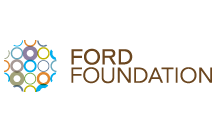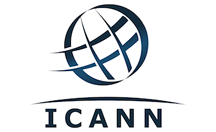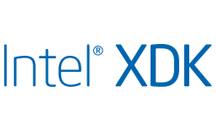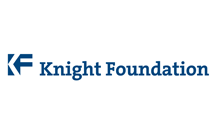WWW2014 Panel: What will the Web be like in another 25 years?
The following remarks from Prof. Dame Wendy Hall, University of Southampton
refer to a panel on WWW: The next 25 years that took place in April at the World Wide Web Conference 2014 in Seoul, Korea.
When the hypermedia community first started talking about the Web as a
concept and started to think about what it might become, few of us
(perhaps with the exception of Tim himself) imagined we would be
sitting in Seoul 25 years later with over a thousand Web experts and
users gathered from around the world thinking about the immeasurable
impact the Web has had on society in virtually all its forms. I doubt
that even Tim would have dared to hope that the topic for our
discussion would have been what we can expect from another 25 years of
the Web.
More than just a discussion about a technical innovation, I was
delighted to chair a panel as part of the 25th birthday celebration
that included social scientists, government specialists and business
visionaries along with the father of the Web and one or two of its
favourite aunts and uncles.
As government, business, health, education, academia and just about
everything becomes web-based, web-centric or web-mediated we need,
more than ever, to promote powerful tools/techniques underpinning a
robust science of the Web to understand what this means for humanity
and to ensure we know how to curate what may be a fragile resource in
turbulent times.
I was joined by Tim Berners-Lee and Jim Hendler (both well know
luminaries of the Web, Open Data and Semantic technologies), Mary
Ellen Zurko a long-time security and Web expert, Yong Ham Kim eminent
Sociologist, Unna Huh a well-known figure in Korean government and
social policy and Prabhakar Raghavan a leading technical figure at
Google. Whilst space, of course, forbids a word-for-word reportage of
the fascinating Q&A that lasted more than hour, I can share with you
some of the key themes that were surprisingly similar across the range
of panellists in response to a deceptively simple question: What
will the Web be like in 25 years?
The Web We Want
For those growing up as part of iGen (the iPhone, iPad generation) the
Web may become completely transparent - something they cannot conceive
of living without though we should be clear that taking the Web for
granted may not be a good idea. It is becoming increasingly difficult
to live without the Web and should that happen one day we may not be
prepared for the consequences.
In many ways the key question is not what WILL the Web be like but
rather what is the “Web We Want” - an unashamed pun on WWW - in
another 25 years? If the Web gives us the ability to share information
or even spy on each other, who would we rather spy on us: people we
know and trust or people we don’t know and perhaps cannot trust?
Whilst, for example, we are seeing growing support for a right to
access the net (recently in Brazil and the EU) we should not take open
access to the Web for granted and if required we must be prepared to
fight to keep the Web open and accessible.
Decentralising the Web
Certain aspects of the Web (such as the reliance on DNS) are
centralised today because at the time, 25 years ago, it made sense to
re-use existing scalable standard Internet services. In countries
where this sort of infrastructure is not well-established, newer ways
of implementing the Web such as spread spectrum mesh technologies
could be an alternative. However we implement services we should make
the distinction between the service delivery and the control of access
and content i.e. centralising servers is not the same as centralising
our control and our interface with the Web through a few “mega-sites”
or a small number of “megaproviders”.
We shouldn’t forget that huge innovation has been driven by the Web
via decentralised communities who have created new data, new
technologies and services. We must consider, given what the research
says about power laws in networks, that decentralising the Web (i.e.
changing the natural structure) may be difficult. We must ensure that
the standards and research support this possibility and that the
non-technical (social) pieces and policies are included.
Connectivity
Connectivity will mean a connection to everyone and everything and
perhaps the ability to rewind and review these interactions to see
“who was right”. Whilst this may bring many positive benefits and
opportunities, connectivity is not always positive and we may see new
types of attacks, not only from anonymous parties but the Web as a
platform for attacks from friends and family.
Doubtless apps will continue to be created to “scam” us for
information, money and other ways to exploit us and as Trust becomes
increasingly important in a highlyconnected/automated world we may
need to crowd-source elements of security and trust.
A Social view of the Web
After a healthy dose of scepticism from social scientists at the
outset, the Web has become a key tool, not only for modelling and
understanding existing social interactions, (many argue that the Web
is socially-constructed rather than simply a technological artefact)
but also for studying new ones such as the “global digital divide” - a
proxy for differences in information, education and
opportunity. Current research shows a high level of correlation
between age + educational level and Internet usage. With such
differences in the amount and quality of access across the planet it
is unclear if the Web will decrease the digital divide or accelerate
it.
Internet and Web policy at the government level
Many fast growing economies (including S. Korea) have placed the Web
at the core of their strategic plans. By leveraging improved
information access and eLearning tools such as MOOCs, the current
education system itself could be replaced by the Web in 25 years with
standardised content being replaced by personalised learning
objectives and flexible delivery. This carries important questions
about the role of teaching at universities and schools and whether the
focus will move from information delivery to
guidance/assessment. Ultra-fast does not necessarily mean ultra-smart
and retaining the wisdom that is built from information and knowledge
must remain at the forefront of our educational policy.
Social Machines
If we are to achieve successful social models based on Web
technologies we must educate our political leaders on the strengths
and weaknesses of the Web and how we can address each of these, not
only for education but as part of a digital democracy and newer forms
of interaction between citizens and leaders - something the Koreans
are calling Government 3.0. Others (most recently at this conference)
have referred to Government as a socalled Social Machine (a term
coined by Tim to denote the interaction between society and technology
to deliver solutions in the real world) and naturally there can hardly
be an understanding of social machines without an understanding of the
social element. Thus social scientists must work more closely with
technologists to foster deep interdisciplinary understanding -
something that lies at the heart of Web Science a discipline which
makes an appearance as main research track at WWW for the first time
this year as well running its own successful conferences since 1995.
The Invisible Web
Increasingly the Web is becoming an implied or even invisible service
- even to developers and technologists. Application developers tend
not to explicitly think about TCP/IP, RAM or power and increasingly
they also simply assume the Web is “simply there” and as this happens
the use of the Web via browsers will increasingly give way to other
forms of interaction and Web clients such as mobile devices, hybrid
wearable devices such as Google Glass and even implanted
devices. Without the need or availability of keyboards and mice to
interact with these devices, attention is likely to turn back to
problems such as NLP (natural language processing), motion/gesture
interfaces and other bio information sources. To do this, large bodies
of data and powerful analytics such as IBM’s powerful Watson
architecture will be needed to ensure the interfaces are reliable and
usable.
Do You Speak Web?
Increasingly the split of languages on the Web is shifting towards
non-english content reflecting the diversity of language and culture
across the Web. Whilst rapid and effective processing of language may
soon be within reach, we are much further away from understanding the
semantics and culture of natural language of users across the
Web. Indeed a clear line should be drawn between specific contextual
tools like automatic translation of restaurant menus or road signs
from a foreign language from the attempt to translate deeper levels of
artistic or cultural content beyond a basic understanding. A
homogenisation of language culture is something we should be aware of
and actively avoid in the Web to come.
Big Data, Personal Data and Easy Access
Watson (or perhaps one of its descendants) is likely to have an
increasingly important role in service delivery for government,
education and health. One of the panellists who works with the IBM
Watson team commented that he sees all doctors being advised by Watson
in just a few years but that he wouldn’t want Watson as his only
doctor for a few years yet! We see the need to harness the power of
the Web and Big Data into accessible platforms and communities that
can be used by anyone and not just domain experts or technology
experts. We can imagine creating systems like the enormously
successful Zooniverse citizen science platforms with the ease of
creating a WordPress site.
The nature of personal data and privacy is being changed by the Web
and the need to keep control of our personal data will become
paramount in a future Web where so many aspects and details of our
lives are captured as data. With so many companies amassing huge
amounts of data for future purposes unclear even to themselves, we
should consider the ethics and implications of Big Data as much as we
consider the benefits.
Access and Impact in the Digital Divide
We have achieved great strides in just a few years with the percentage
of the world’s population who are on the Web doubling from 20% to 40%
in a few short years. This, however, still leaves us with the question
of the 60% who are not on the Web. We must consider not only the raw
access but particularly the impact of the Web as being the key issue
here. The Web Index, for example, seeks to assess this impact across
diverse perspectives such as education, business and politics on a
global scale to understand whether access alone is enough without the
right kind of enablement through education.
Web Impacts can also be negative through crime or exploitation and we
need to be mindful of the ethical values and judgement skills that we
impart to our children beyond the technical skills to access the Web -
these may be no different to parenting and teaching skills in use
today but they will need to be underpinned by a level of understanding
of the risks and pitfalls that accompany the tremendous opportunities
on the Web.
Summary
I am delighted to report that the Web is indeed alive and kicking on
its 25th Birthday and that Tim’s “baby” has grown up.
“The Web is not a baby any more - it’s all grown up with rights and
responsibilities of its own” - Tim Berners-Lee
I am indebted to the amazing panel that joined us in Seoul and hope
that I have managed to give you a flavour of the panel discussion: any
errors in summarising the panel’s words are my own.
Prof. Dame Wendy Hall, University of Southampton









